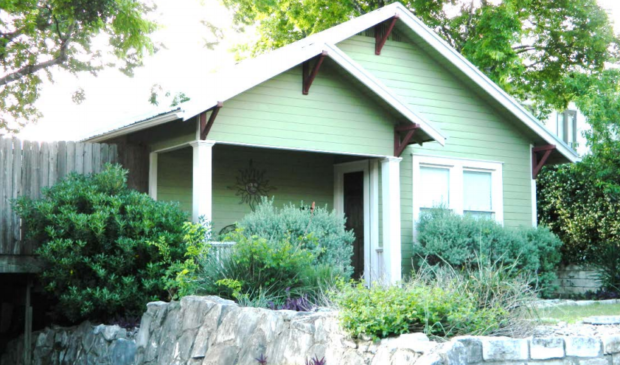Commission facing limited options, West Line demolition postponed
Thursday, July 6, 2017 by
Elizabeth Pagano The Historic Landmark Commission once again exercised one of the few options it has and postponed a demolition in the West Line Historic District at its most recent meeting.
Commissioner Kevin Koch pointed out that the commission’s options were “quite limited” given the fact that the home at 802 Pressler St. is in a national historic district, not a local one. As in the case with most houses in Austin, the commission can only stop demolition by initiating historic zoning.
“I just want to reinforce the importance of converting all these national historic districts to local historic districts,” Koch said. “Otherwise, it’s just a matter of time and a clock ticking. We can’t preserve this entire city by landmarking.”
Commissioner Alex Papavasiliou echoed Koch’s comments.
“Sometimes our hands are tied. … I’ve become more cognizant of the erosion of these national register districts,” he said. “We have two tools on opposite ends that are not getting the results I think most of us would want.”
Despite the pervasive sense of futility, commissioners voted unanimously to postpone the case after a vote to release the demolition permit only received the support of Koch Papavasiliou. The owners have a valid petition against rezoning, which requires a supermajority of the commission to move forward. Commissioners urged neighbors to work quickly to create a local historic district, which will give the city more preservation tools.
Historic Preservation Officer Steve Sadowsky said he did not feel the 1930s bungalow meets the architectural criteria for historic designation and called its historic associations “lackluster.” He said the other criteria under which a home can be designated historic do not apply to the home.
Staff is “strongly encouraging” preservation of the house, which is a contributing structure to the West Line Historic District. “Every contributing building that disappears out of that district weakens the integrity of that district,” said Sadowsky. However, because the historic district is not a local one, the city only has the ability to judge the house on its individual merits.
Jennifer Cundy Chrisler is applying for the demolition permit. She told the commission that the home is owned by her best friend, Pedro Elizondo. He has owned the property for 13 years, and her father will be building the new home.
Chrisler listed myriad problems with the home in advocating for its demolition. For example, she told the commission, the construction of the metal roof has allowed dirt to invade the home, filling the walls and messing up the plumbing and electrical systems. “When you stick your head up into the gable, you see dirt,” she said. “That dirt has been coming into the home since 1930.”
Neighbors spoke against the demolition, which the Old West Austin Neighborhood Association has voted to oppose.
Denise Younger, who has lived on Pressler Street for about 19 years, objected to Chrisler’s characterization of 802 Pressler as a “slum,” pointing out that it is currently operating as a short-term rental. “It’s evidently in good enough condition for them to make money off of it,” she said.
Younger said she would like the opportunity to discuss ways of making the house larger without tearing it down, as she had done with her own house.
“There’s kind of this feeling that it’s hard and won’t work. Many of us have taken houses that were build 40, 50, 60 years ago and added second stories, made modifications to (them) without having to do major structural changes,” she said. “We’re not opposed to change, but we are trying to preserve what we value about this neighborhood.”
Because the property is in a national register district, the design of the proposed new home will return to the commission before any demolition moves forward. However, Chrisler reminded commissioners that the hearing was not about the new design for the property, but the demolition.
“OWANA forced the new design out of us,” she said. “They want us to have a meeting so they can express their opinion about the design. We don’t have time for that. That’s not something we need to entertain.”
Photo courtesy of the city of Austin.
The Austin Monitor’s work is made possible by donations from the community. Though our reporting covers donors from time to time, we are careful to keep business and editorial efforts separate while maintaining transparency. A complete list of donors is available here, and our code of ethics is explained here.
You're a community leader
And we’re honored you look to us for serious, in-depth news. You know a strong community needs local and dedicated watchdog reporting. We’re here for you and that won’t change. Now will you take the powerful next step and support our nonprofit news organization?









